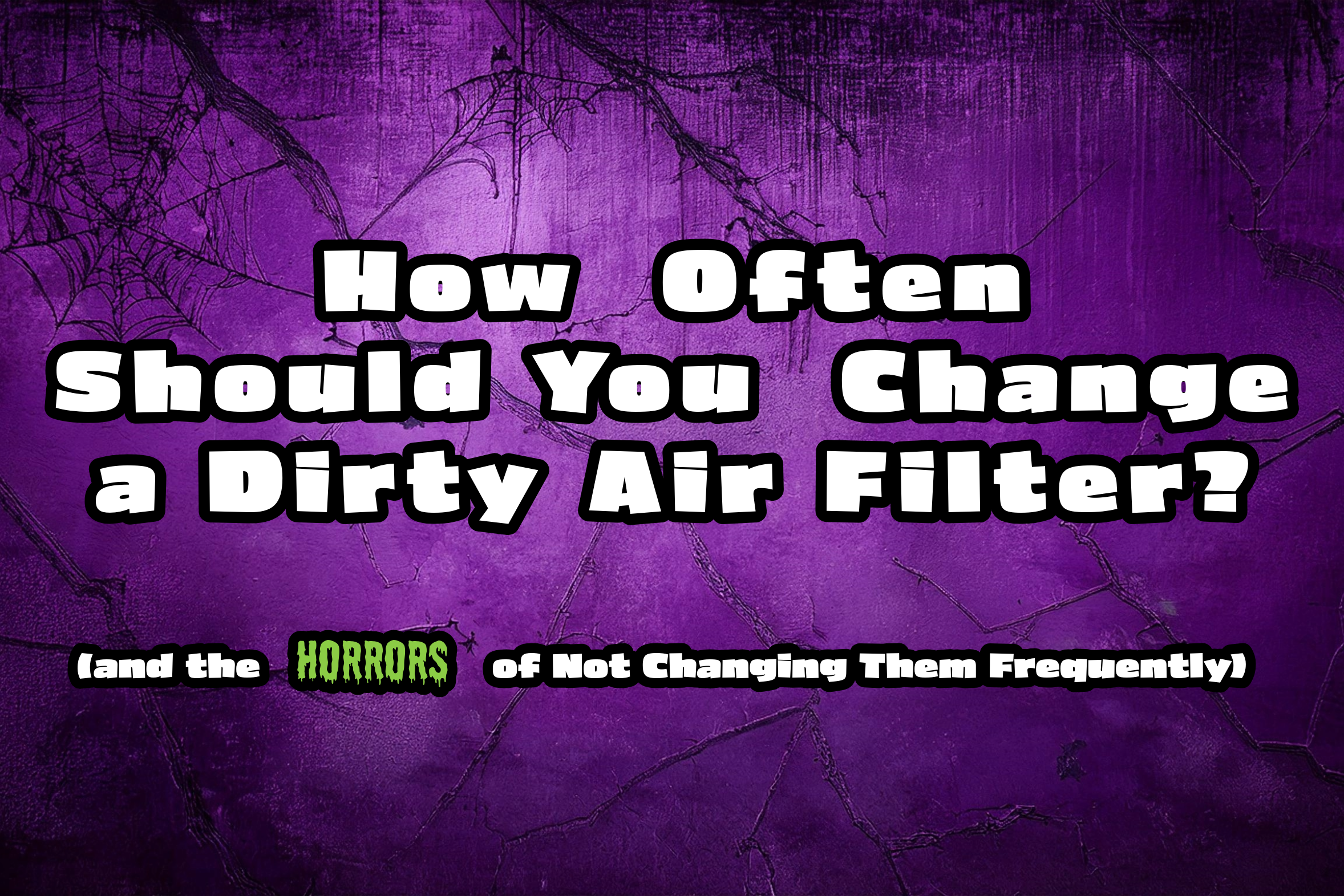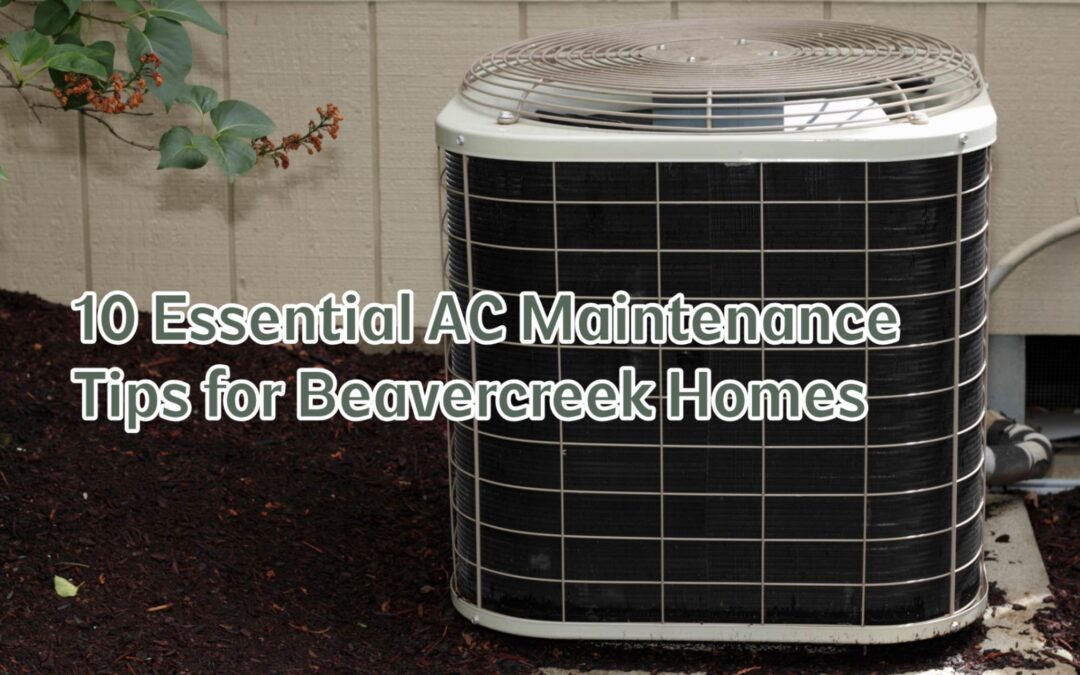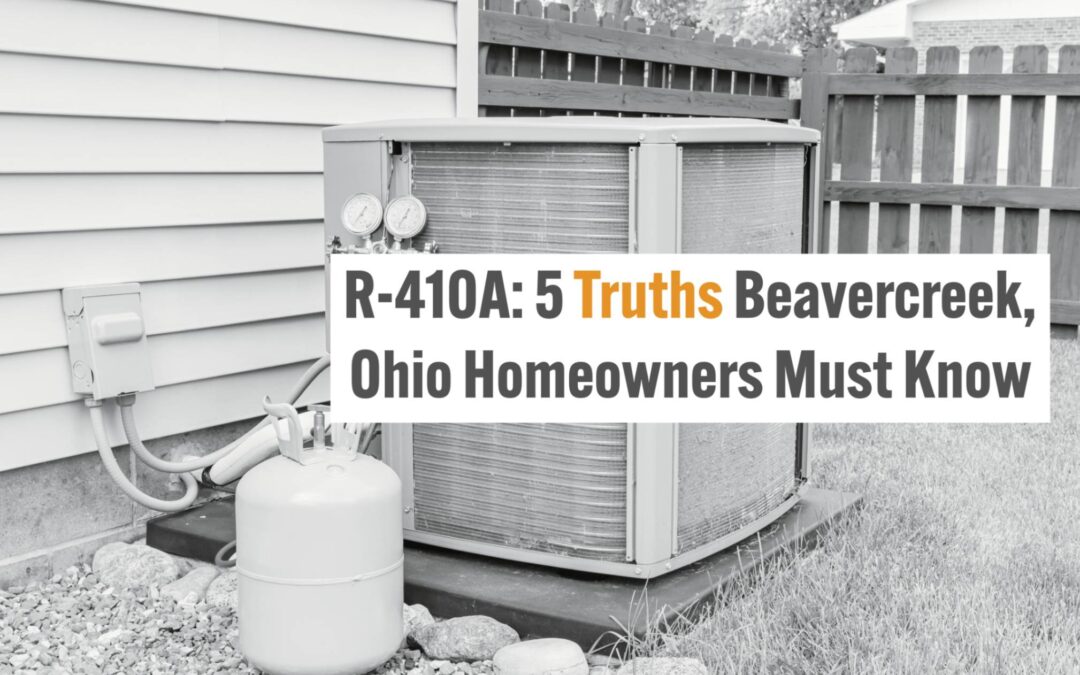Imagine walking into your home only to sneeze, cough, and battle watering eyes. Oh, the horror! Not to be dramatic or anything, but although you may think it’s just seasonal allergies, the culprit could be much closer to home than you think—a clogged air filter in your HVAC system.
It doesn’t sound like too big of a deal, right? While it might seem insignificant, did you know that a clogged air filter can wreak havoc on your home’s indoor air quality (IAQ) and overall health? Beavercreek Heating & Cooling‘s aim today is to shed light on the undeniable horrors of a clogged air filter and explain why every Ohio homeowner should pay attention to their air filters in order to avoid scary HVAC-related consequences.

Why Is It Horrifying?
- Reduced Air Quality – First of all, a clogged air filter means your HVAC system can’t properly filter out airborne contaminants like dust, pollen, and even germs. This leads to poor indoor air quality, which can exacerbate respiratory conditions such as asthma and allergies. So, for Ohio homeowners, where seasonal changes can bring about varied allergens, maintaining high IAQ is crucial.
- Increased Energy Bills – When your HVAC system has to work harder to push air through a clogged filter, it will result in it consuming more energy. According to a study by the Department of Energy, replacing a dirty, clogged filter with a clean one can lower your air conditioner’s energy consumption by 5% to 15%. Ohio’s fluctuating weather conditions mean that your HVAC system is already working hard; don’t make it work harder.
- System Breakdown – Neglecting your air filter can lead to much more than just poor air quality and high energy bills. Over time, the extra strain on your HVAC system can cause it to break down entirely, leading to costly repairs or even a full system replacement. For Ohio homeowners, where HVAC systems are a significant investment, regular maintenance can save you a lot of money in the long run.
What Should You Be Wary of?
- Pollutants and Contaminants – A clogged air filter allows harmful pollutants and contaminants to circulate freely throughout your home. These can include mold spores, pet dander, and even tobacco smoke particles. Such contaminants can cause various health issues, from minor irritations like sore throats to more severe conditions like respiratory infections.
- Dust and Debris Build-up – One of the most immediate and adverse effects of a clogged air filter is the accumulation of dust and debris in your home. You’ll notice that your furniture gets dusty much quicker, and your HVAC vents may even start collecting a layer of dust. This not only makes your home look unclean but also means you’re constantly breathing in these particles.
- Germs and Bacteria – A less obvious but equally dangerous consequence of a clogged air filter is the proliferation of germs and bacteria. A dirty filter can become a breeding ground for harmful microorganisms, which can then be circulated throughout your home. This can be especially uncomfortable for those dealing with preexisting asthmatic or respiratory conditions.
What Are the Tell-tale Signs You Need to Change Your Air Filters?
- Increased Allergy Symptoms – If you or your family members are experiencing increased allergy symptoms despite using medication, it might be time to check your air filter. Keep an eye out for symptoms like sneezing, coughing, and itchy eyes, as they can all be aggravated by poor indoor air quality.
- Unusual Odors – A clogged air filter can often cause unpleasant odors to circulate throughout your home. These could range from a musty smell to something more pungent, depending on what contaminants are trapped in the filter.
- Higher Utility Bills – If you’ve noticed a sudden spike in your utility bills without any change in your HVAC usage, a clogged air filter could be the culprit. The system is forced to work harder, consuming more energy and driving up your costs.
How Often Should You Replace Your Air Filters?
- Seasonal Changes – In Ohio, where the seasons can be quite extreme, it’s advisable to check your air filter at the beginning of each season. This ensures that your HVAC system is prepared to handle the varying demands placed on it throughout the year. If you don’t want to go by the seasons as your rule of thumb, we typically suggest that homeowners change out their air filters every 30-90 days based on usage and lifestyle needs.
- After Renovations – On top of that, if you’ve recently had any home renovations, it’s a good idea to replace your air filter. Home projects and construction work can release a lot of dust and debris into the air, which can quickly clog your filter.
- Pet Owners – For those with pets, changing your air filter more frequently is essential. Keep in mind that pet dander and fur can clog an air filter much quicker than usual, affecting your home’s IAQ.

The importance of a clean air filter in maintaining your HVAC system and ensuring high indoor air quality cannot be overstated. For Ohio homeowners, where seasonal changes can drastically affect air quality, regular maintenance is essential. Remember, when you understand the signs of a clogged air filter and know how to replace it, you can effectively keep your home comfortable and your family healthy.
Don’t wait until it’s too late! Make air filter maintenance a part of your regular home care routine. There are no tricks here; with these tips, you’ll be well-equipped to handle any air filter issues that come your way.
Beavercreek Heating & Cooling can help you tackle any HVAC scares that come your way! Call today at (937) 708-8527, or schedule an appointment online now by clicking here!






